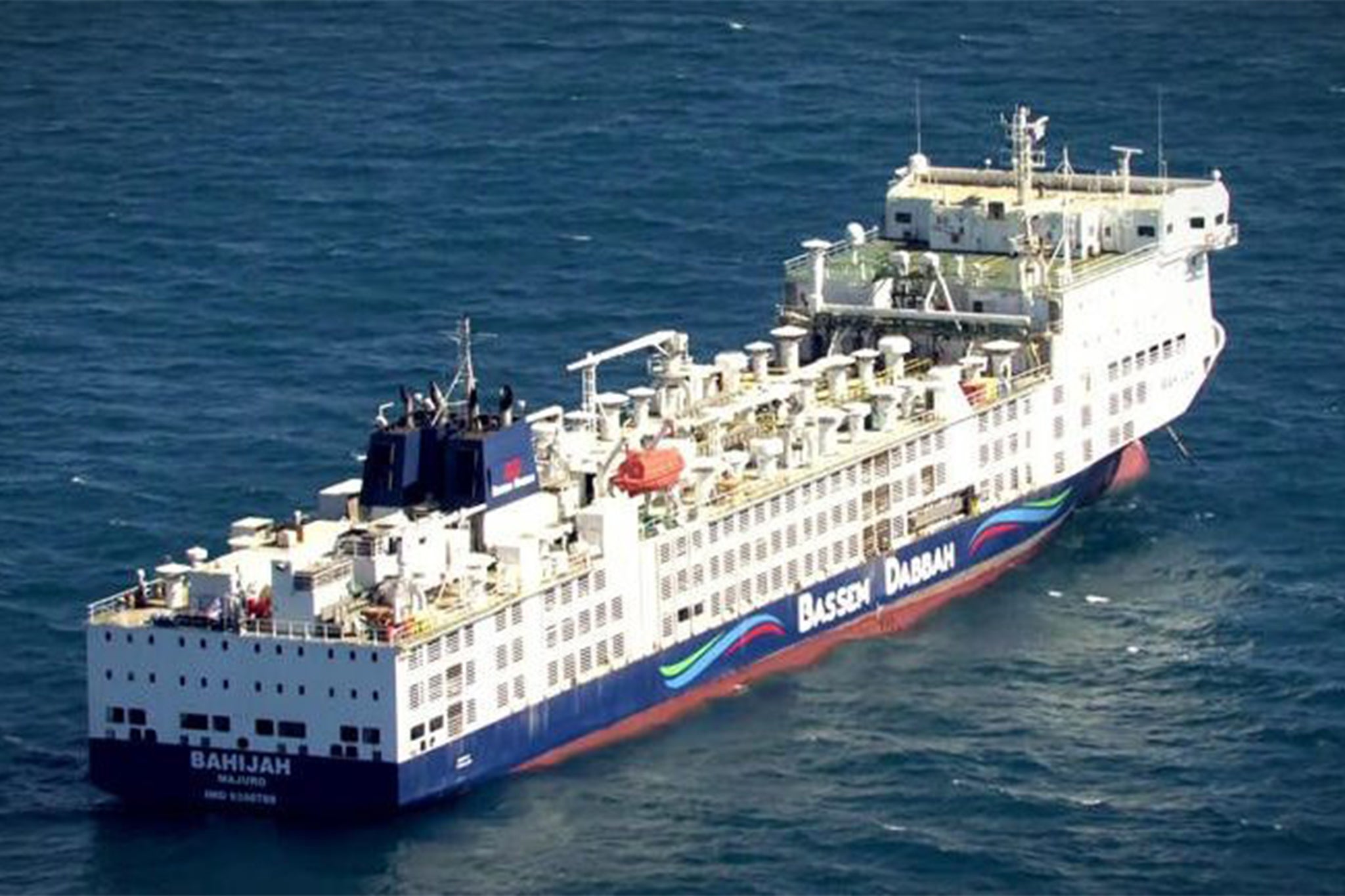Ship forced to avoid Red Sea stranded in 40C heat with 16,000 sheep and cattle onboard
Vessel left Australia but was forced to divert due to threats of attacks by Yemen’s Houthi militia

A ship carrying thousands of sheep and cattle is marooned off the coast of Australia in 40C heat after it was forced to abort its voyage through the Red Sea.
The vessel left Australia on 5 January for Israel but was diverted in the middle of the month due to threats of attack by Yemen’s Houthi militia and forced to turn back.
The 16,000 sheep and 2,000 cattle are now in limbo before the decision is made to offload them in Australia or export them via a longer route around Africa to Israel. Farm and exporter groups say the animals on board the MV Bahijah are in good health but MPs have slammed the situation.
Josh Wilson, a member of parliament for Fremantle, where the ship was loaded, said the animals’ ordeal showed the live export trade was “rotten to its core”.
“What is being contemplated is a 60-day voyage for 14,000 sheep on a stinking hot and literally stinking metal vessel,” he told 10 News.
Israel is a key export market for Australia’s agriculture industry, with 86,100 sheep worth $6.5million and 10,848 cattle worth $14million traded in the first three months of 2023.
The Houthi started attacking Western commercial shipping containers using the Red Sea, which sees around 12 per cent of global trade worth £790bn pass through it every year, after Israel began its war with Hamas in October.
In response, the US and UK conducted retaliatory strikes on Houthi targets across Yemen in a measure intended to deter future attacks.
Saudi Arabia and the US have accused Iran of “fully enabling” the rebel group to attack Israel and Western ships in the Red Sea. Iran denies the allegations, and says the Houthis are autonomous.
But experts say the Houthis, along with Gaza’s Hamas and Lebanon’s Hezbollah, form part of Iran’s “axis of resistance” - a military alliance built over four decades to oppose Israeli and American power in the Middle East.
The axis comprises a group of violent proxies across Yemen, Syria, Iraq, Iran, Lebanon and Palestine, coordinated by Iran’s Quds Force, the foreign arm of the IRGC.
Lebanon’s Hezbollah - the most powerful group in the axis, boasting 100,000 fighters - has exchanged fire with Israeli forces since Hamas went to war with Israel and more than 70 of its fighters have been killed.
Subscribe to Independent Premium to bookmark this article
Want to bookmark your favourite articles and stories to read or reference later? Start your Independent Premium subscription today.

Join our commenting forum
Join thought-provoking conversations, follow other Independent readers and see their replies